J.K. “Rooter” Brite, Jr.
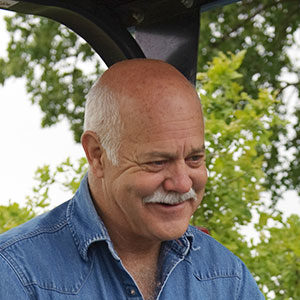 J.K. “Rooter” Brite, Jr. owns and operates the JA Ranch in Bowie, TX. He has worked with the Sustainable Rangelands Roundtable since 2004, participating in monitoring and assessment efforts around sustainable ranch management and grazingland soil health. He also is a treasurer of the National Grazing Lands Coalition, and past president of the Texas GLCI Coalition. Mr Brite has served in leadership roles with the Texas & Southwestern Cattle Raisers Association (Director), the NCBA Property Rights & Environmental Management Committee (Vice-Chair), the Botanical Research Institute of Texas, the Resource Conservation & Development Board (Board Member and Past President), the Association of Texas Soil & Water Conservation Districts (past Vice-President and Board Member), the Texas State Soil & Water Conservation Board (Area 5, Board Member and Vice-Chair). Rooter also serves on the NACD Farm Bill Task Force, and is a member of the National Watershed Coalition, the Texas Section Society for Range Management, and the Texas Farm Bureau. Rooter and his wife Lynda are third generation ranchers, and have one child and two grandchildren.
J.K. “Rooter” Brite, Jr. owns and operates the JA Ranch in Bowie, TX. He has worked with the Sustainable Rangelands Roundtable since 2004, participating in monitoring and assessment efforts around sustainable ranch management and grazingland soil health. He also is a treasurer of the National Grazing Lands Coalition, and past president of the Texas GLCI Coalition. Mr Brite has served in leadership roles with the Texas & Southwestern Cattle Raisers Association (Director), the NCBA Property Rights & Environmental Management Committee (Vice-Chair), the Botanical Research Institute of Texas, the Resource Conservation & Development Board (Board Member and Past President), the Association of Texas Soil & Water Conservation Districts (past Vice-President and Board Member), the Texas State Soil & Water Conservation Board (Area 5, Board Member and Vice-Chair). Rooter also serves on the NACD Farm Bill Task Force, and is a member of the National Watershed Coalition, the Texas Section Society for Range Management, and the Texas Farm Bureau. Rooter and his wife Lynda are third generation ranchers, and have one child and two grandchildren.
Clifford Duke
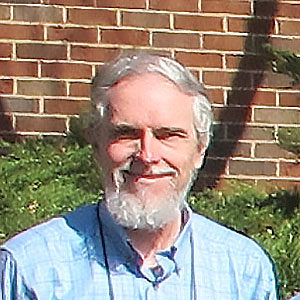 Dr. Clifford Duke directs the Ecological Society of America’s (ESA) Office of Science Programs, which connects the research and management communities, supports the use of science to inform decision making, and builds capacity among scientists. Examples include ESA’s Sustaining Biological Infrastructure training initiative and related workshops on infrastructure sustainability; outreach efforts for the Intergovernmental Platform on Biodiversity and Ecosystem Services; a workshop on the implications of the Nagoya Protocol for biological research; and peer reviews of research programs and studies for federal and state agencies. Dr. Duke’s professional activities include service on the Sustainable Rangelands Roundtable Board of Directors, the American Association for the Advancement of Science’s Science and Human Rights Coalition, and a working group on Accounting for U.S. Ecosystem Services at National and Subnational Scales.
Dr. Clifford Duke directs the Ecological Society of America’s (ESA) Office of Science Programs, which connects the research and management communities, supports the use of science to inform decision making, and builds capacity among scientists. Examples include ESA’s Sustaining Biological Infrastructure training initiative and related workshops on infrastructure sustainability; outreach efforts for the Intergovernmental Platform on Biodiversity and Ecosystem Services; a workshop on the implications of the Nagoya Protocol for biological research; and peer reviews of research programs and studies for federal and state agencies. Dr. Duke’s professional activities include service on the Sustainable Rangelands Roundtable Board of Directors, the American Association for the Advancement of Science’s Science and Human Rights Coalition, and a working group on Accounting for U.S. Ecosystem Services at National and Subnational Scales.
Lori Hidinger
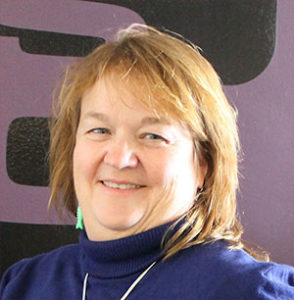 Lori Hidinger has spent her career building linkages between science, policy and management. As the Director of Fiscal and Business Operations for the School for the Future of Innovation in Society, she creates partnerships, leads programs, and strategically manages the School’s human, physical, and financial resources. Previously as CSPO’s Managing Director, she was responsible for overseeing operations and implementing the strategic vision for CSPO’s research, education, and outreach activities, as well as contributing to CSPO projects on climate change, ecological research agendas, and biodiversity. As a member of the Steering Committee for the Sustainable Rangelands Roundtable, she is working with range scientists and managers, as well as livestock producers and environmentalists, to develop and implement criteria and indicators of rangeland sustainability, and focuses on rangeland ecosystem goods and services, climate change, and food security. From 2009 to 2017, Lori served as the Editor-in-Chief of Rangelands, the membership journal of the Society for Range Management. At the Ecological Society of America, she managed projects to integrate ecological science and environmental decision making and build partnerships between ecologists and natural resource managers. Lori received her Bachelor’s of Science in Zoology from the University of Maryland and her Master of Environmental Management from Duke University’s Nicholas School of the Environment.
Lori Hidinger has spent her career building linkages between science, policy and management. As the Director of Fiscal and Business Operations for the School for the Future of Innovation in Society, she creates partnerships, leads programs, and strategically manages the School’s human, physical, and financial resources. Previously as CSPO’s Managing Director, she was responsible for overseeing operations and implementing the strategic vision for CSPO’s research, education, and outreach activities, as well as contributing to CSPO projects on climate change, ecological research agendas, and biodiversity. As a member of the Steering Committee for the Sustainable Rangelands Roundtable, she is working with range scientists and managers, as well as livestock producers and environmentalists, to develop and implement criteria and indicators of rangeland sustainability, and focuses on rangeland ecosystem goods and services, climate change, and food security. From 2009 to 2017, Lori served as the Editor-in-Chief of Rangelands, the membership journal of the Society for Range Management. At the Ecological Society of America, she managed projects to integrate ecological science and environmental decision making and build partnerships between ecologists and natural resource managers. Lori received her Bachelor’s of Science in Zoology from the University of Maryland and her Master of Environmental Management from Duke University’s Nicholas School of the Environment.
Lynn Huntsinger
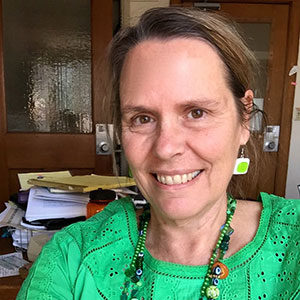 Lynn Huntsinger holds the Russell L. Rustici endowed chair as Professor of Rangeland Ecology and Management at the University of California, Berkeley, where she is an associate dean. Her research focuses on the conservation and management of rangelands, particularly the interaction of social and ecological systems in working landscapes of the western United States. She has published numerous articles and book chapters on topics such as grazing ecology, pastoralism, and traditional and indigenous management, including work on the conservation history of the oak woodlands and forests of California and Spain. She is best known for applying concepts from the literature of international development to management of U.S. rangelands, and for promoting the benefits of the stewardship and conservation of private rangelands.
Lynn Huntsinger holds the Russell L. Rustici endowed chair as Professor of Rangeland Ecology and Management at the University of California, Berkeley, where she is an associate dean. Her research focuses on the conservation and management of rangelands, particularly the interaction of social and ecological systems in working landscapes of the western United States. She has published numerous articles and book chapters on topics such as grazing ecology, pastoralism, and traditional and indigenous management, including work on the conservation history of the oak woodlands and forests of California and Spain. She is best known for applying concepts from the literature of international development to management of U.S. rangelands, and for promoting the benefits of the stewardship and conservation of private rangelands.
John Peterson
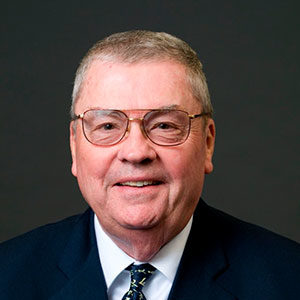 John W. Peterson founded KEMPS Consultants, Inc. with expertise in natural resources public policy, water resources, and erosion and sediment control, in April 1994, after a forty-year highly successful career at the top of the USDA federal civil service (the Senior Executive Service, SES). At retirement, he was an Assistant Chief of the U.S. Department of Agriculture’s Soil Conservation Service (SCS), one of the agency’s top line officers in the career service. He also served as the SCS Deputy Chief for Administration. Peterson has a B.S. in Civil Engineering, a M.A. in Public Administration, and a LL.B. (JD) in Law. From 1994 to 2004 John also served as the Executive Director of the National Watershed Coalition. In that role, he was the National Watershed Coalition’s representative in Washington, DC, and was the initial drafter and a lead champion for the successful passage of PL 106-472, the Small Watershed Rehabilitation Act of 2000. That was the first major USDA water resources legislation passed in over 22 years, and it allowed USDA to assist watershed sponsors in bringing their dams up to current safety standards. John is recognized internationally for his expertise in watershed planning, dam safety, and erosion and sediment control. He directed USDA’s Watershed Programs nationally for 6 years. He is a three-term president of the International Erosion Control Association, past Mid-Atlantic Chapter President, and a Fellow of the Soil and Water Conservation Society (SWCS). He is a past director of the Potomac Nationals Baseball Booster Club. The Potomac Nationals are the High Class-A farm team of the Washington Nationals. John is a veteran and he retired in 1991 from the US Army, after a 32-year active and active reserve career, as an Infantry Colonel. He is active in many professional organizations. In 2004 & 2005, John served on the Ad Hoc Dam Safety Committee for the Virginia Soil and Water Conservation Board. He is a Director (chairman) of the Northern Virginia Soil and Water Conservation District and is the Virginia Association of Soil & Water Conservation Districts (VASWCD’s) Board Representative to the National Association of Conservation Districts (NACD). John is also a VA Senatorial appointed member of Virginia’s Chesapeake Bay Restoration Fund Advisory Committee. He serves as the Director of Government Relations for The Land Improvement Contractors of America (LICA), is the Washington DC Representative for the Soil and Water Conservation Society (SWCS), and is an elected director and president, of the Time-Share Owners Association of the Ocean Cove at Palmetto Dunes Resort at Hilton Head Island, SC. He is also on the Board of Directors, past Chairman, and a Fellow of EnviroCert International, Inc. One of the things John is proudest of is the John W. Peterson Agricultural Scholarship established by the Organization of Professional Employees of the US Department of Agriculture (OPEDA) in recognition of his leadership. He is an Eagle Scout. John and Blanche have five grown children and seven grandchildren, and live in Burke, VA.
John W. Peterson founded KEMPS Consultants, Inc. with expertise in natural resources public policy, water resources, and erosion and sediment control, in April 1994, after a forty-year highly successful career at the top of the USDA federal civil service (the Senior Executive Service, SES). At retirement, he was an Assistant Chief of the U.S. Department of Agriculture’s Soil Conservation Service (SCS), one of the agency’s top line officers in the career service. He also served as the SCS Deputy Chief for Administration. Peterson has a B.S. in Civil Engineering, a M.A. in Public Administration, and a LL.B. (JD) in Law. From 1994 to 2004 John also served as the Executive Director of the National Watershed Coalition. In that role, he was the National Watershed Coalition’s representative in Washington, DC, and was the initial drafter and a lead champion for the successful passage of PL 106-472, the Small Watershed Rehabilitation Act of 2000. That was the first major USDA water resources legislation passed in over 22 years, and it allowed USDA to assist watershed sponsors in bringing their dams up to current safety standards. John is recognized internationally for his expertise in watershed planning, dam safety, and erosion and sediment control. He directed USDA’s Watershed Programs nationally for 6 years. He is a three-term president of the International Erosion Control Association, past Mid-Atlantic Chapter President, and a Fellow of the Soil and Water Conservation Society (SWCS). He is a past director of the Potomac Nationals Baseball Booster Club. The Potomac Nationals are the High Class-A farm team of the Washington Nationals. John is a veteran and he retired in 1991 from the US Army, after a 32-year active and active reserve career, as an Infantry Colonel. He is active in many professional organizations. In 2004 & 2005, John served on the Ad Hoc Dam Safety Committee for the Virginia Soil and Water Conservation Board. He is a Director (chairman) of the Northern Virginia Soil and Water Conservation District and is the Virginia Association of Soil & Water Conservation Districts (VASWCD’s) Board Representative to the National Association of Conservation Districts (NACD). John is also a VA Senatorial appointed member of Virginia’s Chesapeake Bay Restoration Fund Advisory Committee. He serves as the Director of Government Relations for The Land Improvement Contractors of America (LICA), is the Washington DC Representative for the Soil and Water Conservation Society (SWCS), and is an elected director and president, of the Time-Share Owners Association of the Ocean Cove at Palmetto Dunes Resort at Hilton Head Island, SC. He is also on the Board of Directors, past Chairman, and a Fellow of EnviroCert International, Inc. One of the things John is proudest of is the John W. Peterson Agricultural Scholarship established by the Organization of Professional Employees of the US Department of Agriculture (OPEDA) in recognition of his leadership. He is an Eagle Scout. John and Blanche have five grown children and seven grandchildren, and live in Burke, VA.
J.D. Wulfhorst
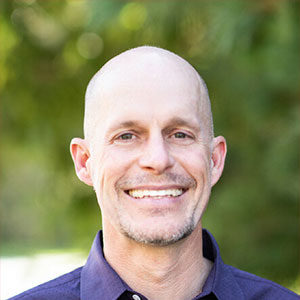 J.D. Wulfhorst has been on the University of Idaho faculty since 2000 serving in teaching, research, and administrative roles. His background and training is in the area of Rural Sociology and Environmental Science. Since 2001, he has conducted a series of social and community assessments for rangelands in the State of Idaho to better substantiate the types of human impacts individual producers and communities can experience related to rangelands policy and management as well as the related social conflicts that can occur. He currently serves as Director of the University of Idaho interdisciplinary Environmental Science Program, teaches Social Science Research Methods for Natural Resources, and has a several research projects to conduct social assessments associated with the USFS Forest Revision Plan process on the Salmon-Challis National Forests as well as USDA’s Longterm Agro-ecosystem Research (LTAR) Network.
J.D. Wulfhorst has been on the University of Idaho faculty since 2000 serving in teaching, research, and administrative roles. His background and training is in the area of Rural Sociology and Environmental Science. Since 2001, he has conducted a series of social and community assessments for rangelands in the State of Idaho to better substantiate the types of human impacts individual producers and communities can experience related to rangelands policy and management as well as the related social conflicts that can occur. He currently serves as Director of the University of Idaho interdisciplinary Environmental Science Program, teaches Social Science Research Methods for Natural Resources, and has a several research projects to conduct social assessments associated with the USFS Forest Revision Plan process on the Salmon-Challis National Forests as well as USDA’s Longterm Agro-ecosystem Research (LTAR) Network.
